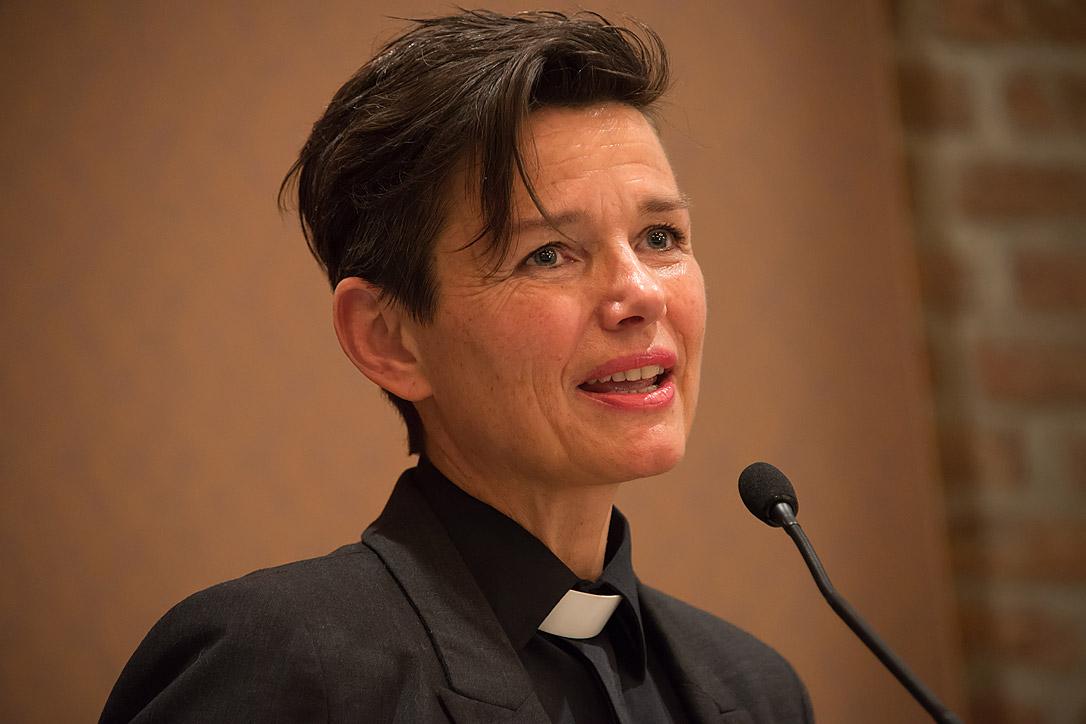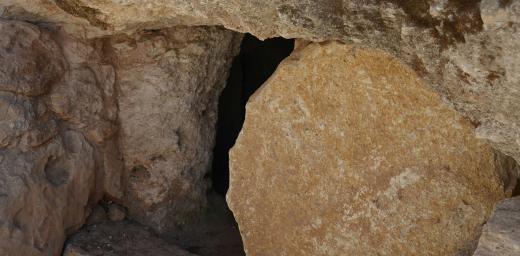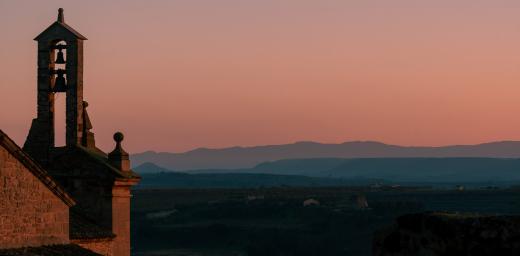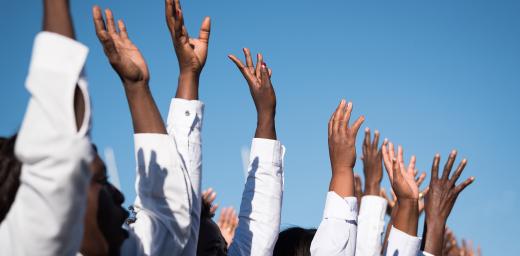Perspectives on church witness in European society today

Rev. Siv Limstrand, Open Church of Trondheim City Mission, speaks at the LWF Europe panel during the church leadership gathering in Trondheim, Norway. Photo: LWF/Ryan Rodrick Beiler
Panelists at LWF European church gathering describe varying contexts
(LWI) – “From what have we been liberated and how do we use that freedom?” That was the question discussed on 12 May at The Lutheran World Federation (LWF) regional church gathering in Trondheim, Norway.
German, Norwegian and Polish panelists shared stories of how they have seen liberation expressed through various experiences of individual and communal salvation. They are among 80 representatives of LWF member churches attending the European Church Leadership Consultation (ECLC), 11-14 May.
Rev. Siv Limstrand of the Open Church of Trondheim City Mission described Easter celebrations that include her community’s most marginalized members—refugees, people with mental illness, and injecting drug users.
“There was a procession of Good Friday experiences through our streets—human beings who have experienced betrayal, humiliation, torture,” said Limstrand. “We were following the same cross. We were the cross. We could feel the solidarity coming from it.”
Noting the human tendency to remain in Good Friday’s darkness, Limstrand declared, “The light of Easter is stronger. Resistance and hope and courage grow again and again.”
Church-state relationships
Shifting from the personal to the political, Svein Arne Lindø, Moderator of Church of Norway National Council, detailed the reforms that are changing church-state relationships in the country.
“We have different relations but we are still financed by the state,” said Lindø.
Constitutional amendments in 2012 affirmed Church of Norway’s unique role while enshrining equal support for all religions and beliefs. Greater church administrative independence from the state is set for 2017 - as the church celebrates 500 years of Reformation.
“Could we call it a new Reformation in Norway?” asked Lindø.
New social and economic pressures
In his presentation and response to an audience question, Bishop Jerzy Samiec, Evangelical Church of the Augsburg Confession in Poland, recounted the dramatic changes in church life before and after the fall of communism. Liberation brought great wealth to some but many suffer from poverty and unemployment. Younger generations have done much to broaden the horizons of those who grew up behind the Iron Curtain but they face pressures to focus on material success.
“Of course we had problems under communism,” said Samiec. “Now we have freedom, and we have to try and reach the people and see how they need our church.”
Reconciled diversity
Bishop Jan Janssen, Evangelical Lutheran Church in Oldenburg, concluded with an outward-looking ecumenical perspective on liberation. Describing relationships among different traditions in Germany that extend to partners in Ghana and Togo, he said, “We thank God for this liberation from our own house and home to the open horizons of our distant neighbors.”
“The seed of the gospel has grown although sometimes it has seen different flowers than those [from] our own traditions,” said Janssen. “A diversity of species in creation and many different languages of faith are gifts from the creative spirit of God who liberates us to come together in reconciled diversity.”
A second panel led by the Norwegian Free Church will take place today.
Discussions at the LWF regional gathering are guided by the Reformation and Twelfth Assembly theme, “Liberated by God’s Grace.” This year’s meeting is hosted jointly by Church of Norway and the Evangelical Lutheran Free Church of Norway.
A contribution by freelance journalist Ryan Rodrick Beiler.





